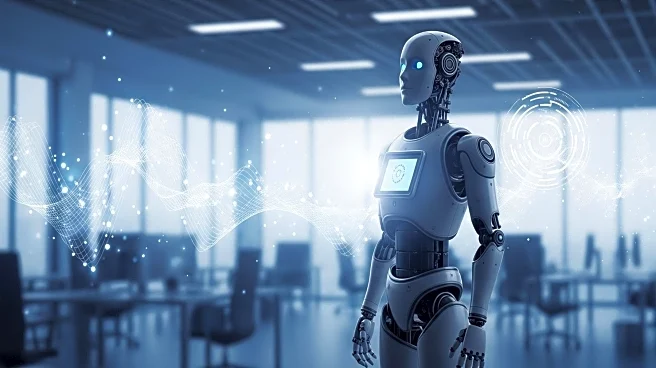What's Happening?
Scott Schmidt, global deputy talent leader at EY, highlights the challenges HR departments face as AI agents become integral to the workforce. The focus is shifting from technical issues to management challenges, as organizations must decide how to train, manage, and evaluate AI agents. Schmidt emphasizes the need for HR to develop new processes for AI agent onboarding, performance standards, and feedback mechanisms. He stresses that AI integration requires a cultural shift within organizations, where AI is seen as a partner rather than a threat. This involves fostering a culture of curiosity and openness to change, which is crucial for successful AI deployment.
Why It's Important?
The integration of AI agents into the workforce represents a significant shift in how organizations operate, impacting HR practices and employee relations. As AI becomes more prevalent, HR departments must adapt to manage these digital employees effectively. This shift has implications for workforce training, performance evaluation, and organizational culture. Companies that successfully integrate AI will likely gain a competitive edge, while those that fail to adapt may struggle with employee resistance and inefficiencies. The ability to interpret AI-generated data and translate it into strategic business insights will become a valuable skill for HR professionals.
What's Next?
Organizations are encouraged to assess their readiness for AI integration by evaluating their cultural openness to change and experimentation. HR leaders should focus on building a flexible learning infrastructure to accommodate diverse AI learning needs. Developing strategic 'translation' capabilities within HR teams will be crucial for interpreting AI insights and aligning them with business strategies. As AI technology continues to evolve, HR departments must build agility and comfort with ambiguity to make informed decisions in an uncertain environment. This preparation will position organizations to leverage AI effectively as it becomes an essential part of the workforce.
Beyond the Headlines
The ethical implications of AI integration in the workplace are significant, as organizations must ensure that AI agents are managed in a way that respects employee rights and promotes fairness. The cultural shift required for successful AI deployment also raises questions about the future of work and the role of human employees in an increasingly automated environment. Organizations must balance technological advancement with human-centric approaches to maintain employee engagement and trust.









